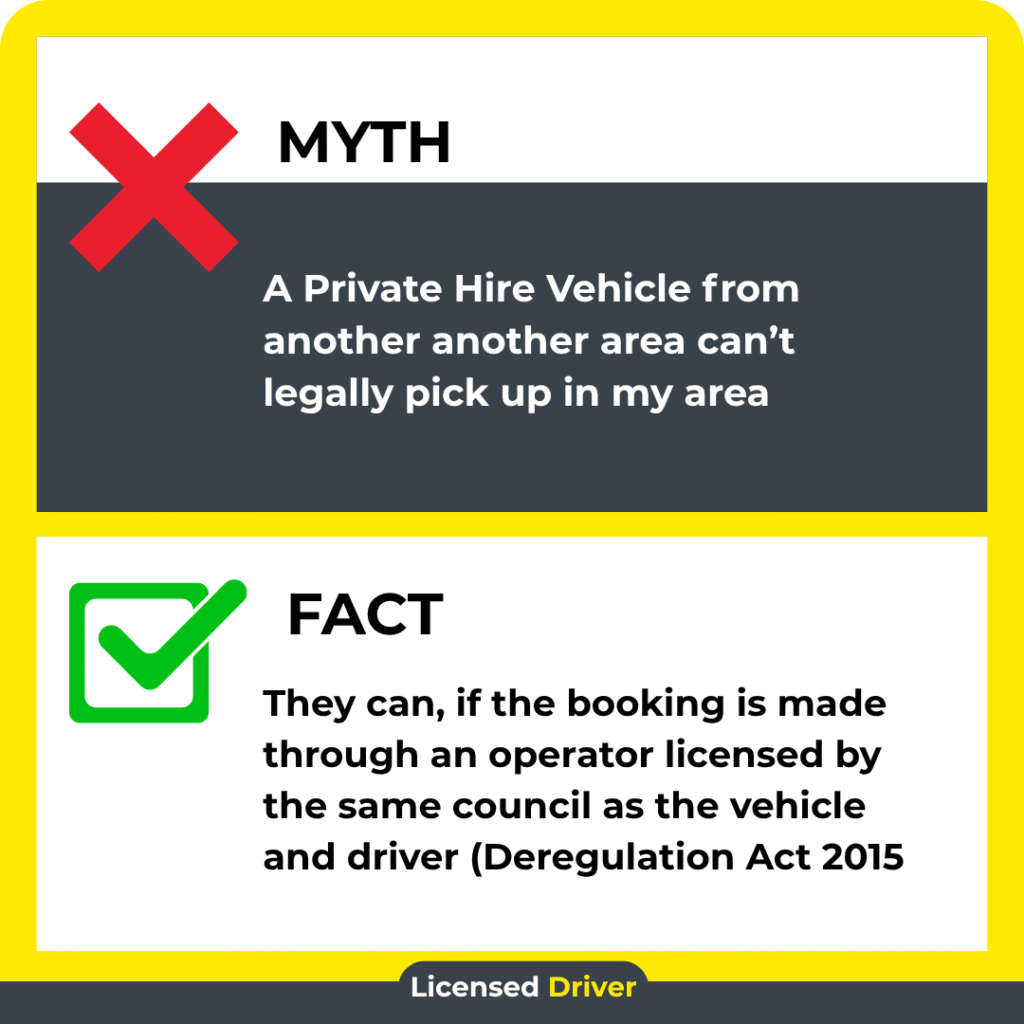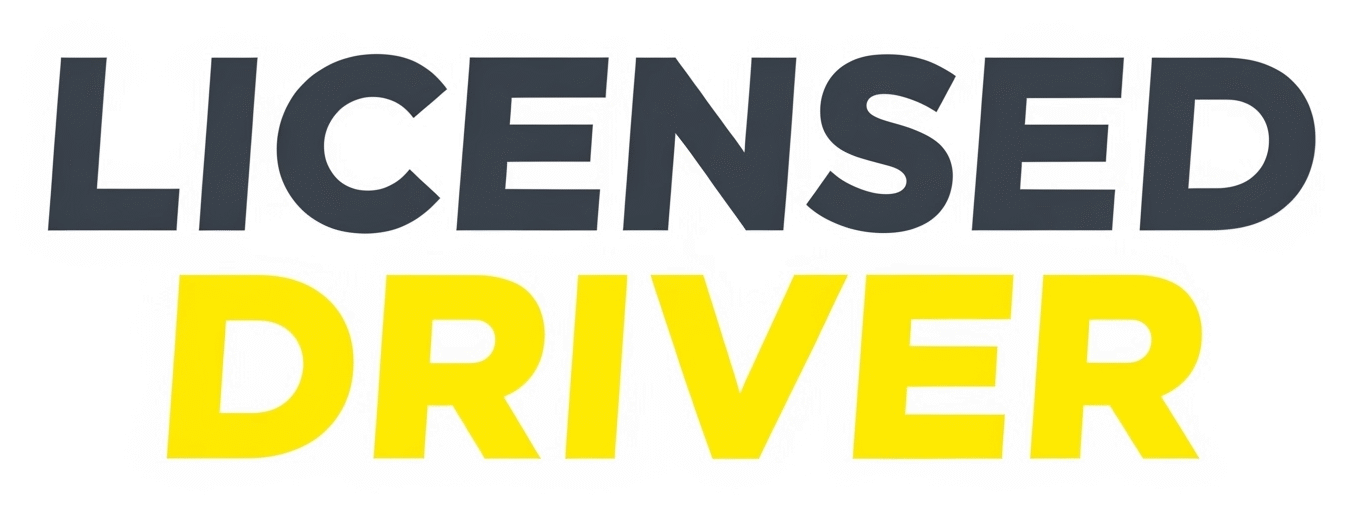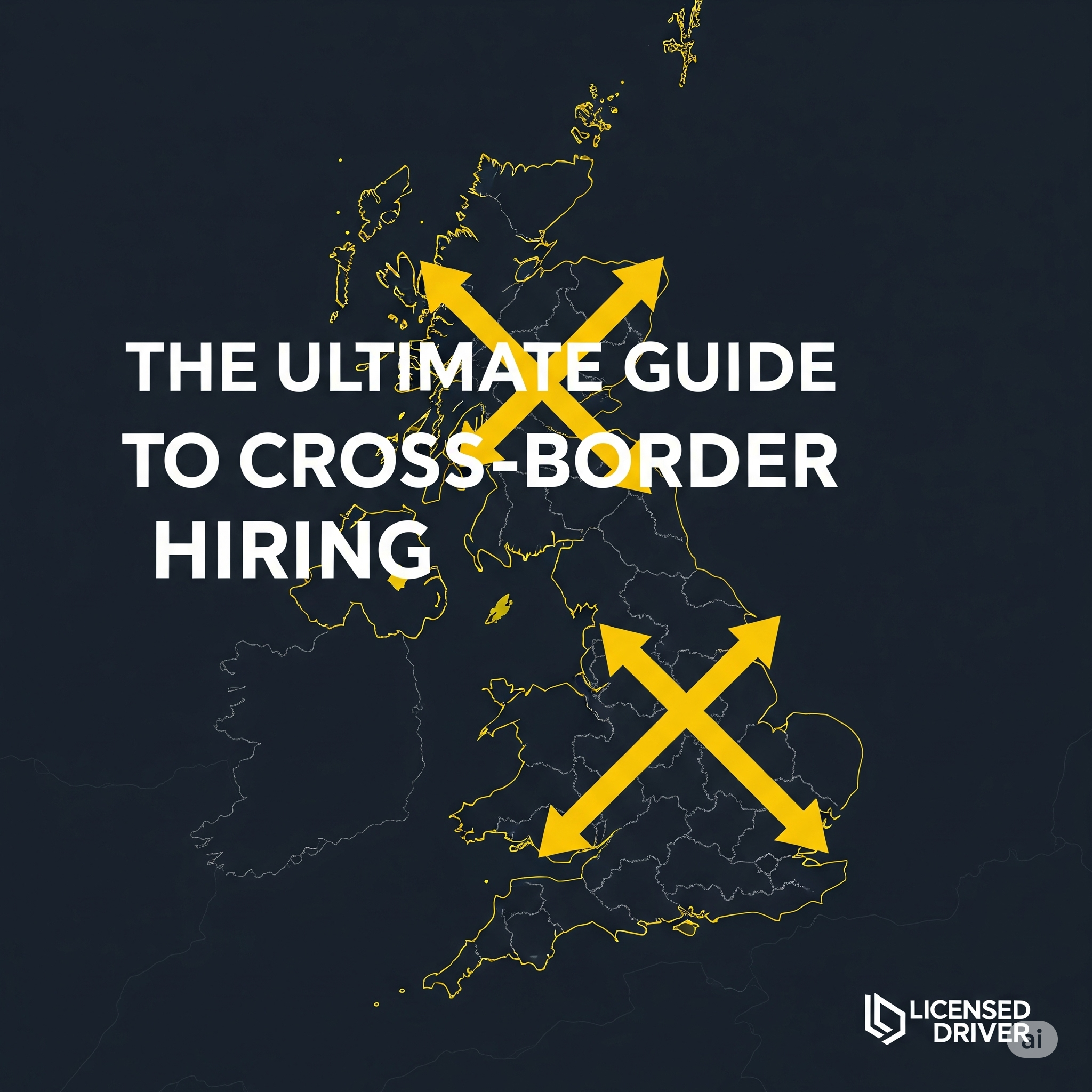The Bottom Line: Read This First
- A private hire journey is only legal if the Operator, Vehicle, and Driver are all licensed by the same council. This is the “Triple Lock”.
- The Deregulation Act 2015 is the law that allows operators to subcontract jobs to other operators in different council areas. This is where the confusion starts.
- Your local council cannot punish an out-of-area driver for breaking local vehicle rules (like vehicle age or CCTV policies). Their powers are limited.
It’s The Biggest Argument in the Trade
You see it every weekend. A car with plates from 100 miles away is picking up a fare on your patch, and you’re left wondering how it can possibly be legal. It’s the source of frustration and arguments on ranks and in depots across the country.
Most drivers know the rules feel unfair, but many don’t know the exact laws that allow this to happen. They just know it doesn’t feel right.
This guide changes that. We will break down the real rules of cross-border hiring in plain, simple English. After reading this, you will understand the law better than almost anyone on the road. Let’s begin.
The ‘Triple Lock’: The Golden Rule of Private Hire
Before we talk about anything else, you need to understand the most important rule in private hire law. We call it the “Triple Lock”.
For any private hire journey to be legal, three things must all be licensed by the same council.
- The Operator (the company that takes the booking from the customer)
- The Vehicle (the car itself, with its licence plate)
- The Driver (the person holding the badge)
If any one of these three parts is from a different council, the lock is broken, and the journey is illegal.
Think of it like a key with three parts. If the Operator is from Wolverhampton, the Vehicle is from Wolverhampton, and the Driver is from Wolverhampton, the key fits the lock perfectly. But if the Operator is from Wolverhampton and the Driver is from Birmingham, the key is broken.
This “Triple Lock” is the foundation of everything. Always remember it.
The Law That Changed Everything: The Deregulation Act 2015
So if the “Triple Lock” is the golden rule, how do you see cars from other cities working on your patch? The answer lies in a single piece of legislation: the Deregulation Act 2015.
This law made it completely legal for a licensed private hire operator to pass a booking (sub-contract) to a different licensed operator, even if that operator is based in another council area.
This was intended to help businesses cover jobs during busy periods. But in reality, it created the loophole that allows for large-scale, out-of-area working today.
How it Works: A Real-World Example
Let’s break down how a journey in Manchester can be legally covered by a driver and car from Wolverhampton.
- The Booking: A customer in Manchester opens an app and books a car. That booking is accepted by “Operator A,” who is fully licensed by Manchester City Council.
- The Sub-Contract: “Operator A” in Manchester then sub-contracts that job to “Operator B,” who is a separate company licensed by Wolverhampton City Council. This is the key step made legal by the 2015 Act.
- The Dispatch: “Operator B” in Wolverhampton now has the booking. They dispatch a driver and a vehicle who are both licensed by Wolverhampton City Council.
- The ‘Triple Lock’ is Maintained: Because the Wolverhampton Operator is dispatching a Wolverhampton Driver in a Wolverhampton Vehicle, their own “Triple Lock” is secure. The journey is therefore legal, even though it’s taking place entirely in Manchester.
This is the system, working exactly as the law allows. The frustration for local drivers is that the Wolverhampton car only had to meet Wolverhampton’s standards, not Manchester’s potentially stricter ones.

Real-World Scenarios: Is This Journey Legal?
Let’s put the theory into practice. Here are some common situations you will see on the road, with a clear verdict on whether they are legal or illegal.
Scenario A: The Out-of-Area App Booking
- The Situation: A driver with a vehicle plated in Wolverhampton is picking up a passenger from Manchester city centre. The job was booked on a major ride-hailing app.
- Verdict: LEGAL (providing the rules are followed).
- The Plain English Explanation: This is legal as long as the app operator sub-contracted the job correctly. For example, the booking was sent from their Manchester-licensed operator company to their Wolverhampton-licensed operator company, who then dispatched a fully Wolverhampton-licensed driver and vehicle. This follows the Deregulation Act 2015.
Scenario B: The Street Flag
- The Situation: The same Wolverhampton driver drops off his passenger in Manchester. A few moments later, a person on the street flags him down and asks for a ride.
- Verdict: ILLEGAL.
- The Plain English Explanation: This is illegal “plying for hire.” As a Private Hire Vehicle, the driver can only accept pre-booked jobs from their licensed operator. By accepting a job from the street, they are breaking the law, and their insurance is instantly invalid for that journey.
Scenario C: The Hackney Carriage Return Journey
- The Situation: A licensed Liverpool Hackney Carriage (a ‘black cab’) drops a passenger off in Manchester. Can they legally pick up a pre-booked fare from Manchester to take back to Liverpool?
- Verdict: LEGAL.
- The Plain English Explanation: Yes. This is a key difference between vehicle types. The rules restricting Hackney Carriages to plying for hire within their licensed area do not stop them from carrying out pre-booked work anywhere in the country.
Scenario D: The Airport Pick-Up
- The Situation: A driver and vehicle licensed in Sefton drop a passenger at Manchester Airport. While in the airport car park, their Sefton-based operator sends them a new booking to pick up another passenger from the airport to go back towards Sefton.
- Verdict: LEGAL.
- The Plain English Explanation: This is perfectly legal. The “Triple Lock” is what matters, not the location of the driver when they accept the job. The booking came from a Sefton Operator and was given to a Sefton Driver in a Sefton Vehicle. The lock is secure

The Enforcement Gap: Why It Feels Unfair
So, if the rules are clear, why does it feel so lawless on the streets? Why do local drivers who pay for expensive plates and follow strict local rules have to compete with cars that seemingly don’t?
The answer is what we call “The Enforcement Gap.”
In simple terms: a council’s licensing enforcement officers have no power over drivers and vehicles licensed by another council.
Their legal powers stop at their own border. A Manchester City Council enforcement officer cannot, for example, issue a penalty or suspension to a driver or vehicle licensed by Wolverhampton. They have no jurisdiction over them.
Local Standards vs. National Law
This is where the frustration comes from. Your local council might have very high standards, such as:
- Stricter emissions standards or a vehicle age limit (e.g., under 10 years old).
- A requirement for all vehicles to have CCTV installed.
- Mandatory disability awareness training for all drivers.
- A difficult local knowledge test.
An out-of-area car does not have to meet any of these specific local standards. They only have to meet the standards of their own, often less strict, licensing authority. This creates a two-tier system on the same roads, but it is entirely legal.
What CAN a Local Enforcement Officer Do?
While they can’t enforce other councils’ licensing conditions, a local officer can take action against any driver for breaking general laws. Their main weapon against out-of-area drivers is proving illegal plying for hire.
If they can prove a private hire vehicle took a journey without a prior booking, they can prosecute them for that offence, which also invalidates their insurance. This is why you may see enforcement operations at transport hubs and nightlife areas, as this is where they are most likely to catch drivers breaking this fundamental law.
Knowledge is Your Best Defence
The rules around cross-border hiring are complex, and it’s easy to feel that the system is unfair. It often seems designed to work against the local driver who follows the highest standards.
But now you have the facts. You know about the “Triple Lock”. You understand how the Deregulation Act 2015 created the sub-contracting system. And you know why local councils can’t enforce their own rules on out-of-area cars.
This knowledge is your most powerful tool.
It allows you to tell the difference between legal, professional competition and someone genuinely breaking the law by illegally plying for hire. It helps you focus your energy on what you can control and operate with the confidence of an expert.
Stay informed, stay professional, and know your rights.
Join the Conversation
What’s your experience with cross-border hiring in your town? Share this guide with another driver who needs to see it, and join the Licensed Driver community on Facebook to discuss your views and stay updated.

